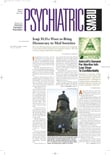If adopted, a regulation proposed in late February by the Internal Revenue Service (IRS) could limit the number of medical residents who are exempt from paying taxes under the Federal Insurance Contributions Act (FICA).
The new proposal provides guidance on the definition of schools, colleges, and universities (SCU) and whether medical residents fall under the category of student or employee in the FICA law.
Under FICA, enacted by Congress in 1939, employers collect taxes by deducting 7.65 percent of employee wages and paying an equal share of taxes to the IRS to support Social Security and Medicare.
Under the IRS code, all wage earners must pay FICA taxes.
However, section 3121 (b)(1) of the code states that “employment” excludes services performed in the employ of an SCU or an organization that it operates, if the services are performed by a student who is enrolled in classes at the SCU.
For residents, the benefits of being exempt from having to pay taxes under FICA include having more disposable income during a time when salaries are typically low—a resident earning $40,000 per year, for example, would pay $3,060 in FICA taxes.
However, being exempt from FICA taxes may also present problems for residents.
To qualify for benefits under Social Security, a person must accumulate a certain number of credits. Being exempt from FICA taxes during residency training reduces the number of credits a physician has accrued and could prevent him or her from qualifying for disability benefits in the early years of practice.
State Wants Money Back
Under FICA, students were clearly exempt from paying FICA taxes, but another group fell into a gray area—resident physicians working in hospitals. Were they students or employees?
According to the IRS, they are employees who must pay the taxes. Many in the medical field disagreed.
In 1998 the state of Minnesota petitioned the 8th Circuit Court of Appeals for a refund of taxes paid under FICA because, the state maintained, residents were students and therefore should not have to pay the taxes.
In the case, Minnesota v. Apfel, the court ruled that resident physicians at the University of Minnesota qualified for the student exemption. The court said that “the primary purpose for a resident’s participation in the program is to pursue a course of study rather than earn a livelihood. . . .”
Claims Filed
Following the decision, a number of teaching hospitals filed claims for tax refunds. According to data published in several news reports, 228 organizations requested more than $162 million in FICA refunds by 2000, which prompted the IRS to publish two General Counsel Memoranda in 2000 and 2001.
In the November 2001 memorandum, the IRS said that hospitals, whether affiliated with a teaching school or not, do not meet the qualifications of an SCU. It stated, “The authorities have concluded that an affiliation agreement with a medical school does not mean a teaching hospital itself must qualify as a school” and “a teaching hospital’s graduate medical education program is generally incidental to, and intended to further, the hospital’s primary purpose, namely, patient care.”
Despite the IRS memoranda, a federal district court in Minnesota ruled in August 2003 that residents did not have to pay the FICA taxes. The case was United States v. Mayo Foundation for Medical Education and Research.
The Mayo Foundation is a nonprofit organization based in Rochester, Minn., that provides graduate medical education programs for residents and fellows through its hospitals and clinics.
In this case, the IRS contended that residents’ employers were the hospitals and clinics in which the residents delivered health care services, but the judge asserted that the residents’ employer was the Mayo Foundation, “a nonprofit institution having as its charitable purposes medical education and scientific research,” and that the foundation “spends more on medical education and research than it receives from patient care.”
The IRS sought to settle the issue by publishing proposed guidelines in the February 25 Federal Register.
The proposed regulations first attempt to clarify whether hospitals qualify as SCUs.
According to the guidelines, despite the fact that hospitals may conduct educational activities, the primary function of a hospital is the care of patients, and “defining the term SCU to include institutions whose primary function is other than to carry on educational activities could lead to expansion of the student FICA exception beyond what Congress intended,” the guidelines state.
The regulations also set forth a number of standards to determine whether a resident is considered a student or an employee under FICA.
A resident would be considered a student if he or she is enrolled and regularly attending classes that follow the curriculum designed by a faculty member and is pursuing a course of study required to receive a degree.
In contrast, the IRS would consider a resident an employee if he or she regularly works more than 40 hours a week, is eligible to participate in retirement-benefit programs offered by the employer, and must be licensed in order to perform work duties.
The IRS has requested comments on the criteria described in the guidelines. Comments on the proposed regulation are due by May 25 and can be submitted at the IRS Web site at www.irs.gov/regs.
The comments will be discussed during a public hearing on June 16 in the auditorium of the Internal Revenue Service building at 1111 Constitution Avenue in Washington, D.C.
The proposed FICA regulations are posted online at www.fda.gov/OHRMS/DOCKETS/98fr/04-3858.pdf; the ruling in Minnesota v. Apfel is posted at www.law.cornell.edu/socsec/rulings/ar/AR98-05-ar-08.html.
[Minnesota v. Apfel, 151 F.3d 742 (8th Cir. 1998)]; [United States v. Mayo Foundation for Medical Education and Research 282 F. Supp. 2d 997 (D. Minn. 2003)]. ▪
